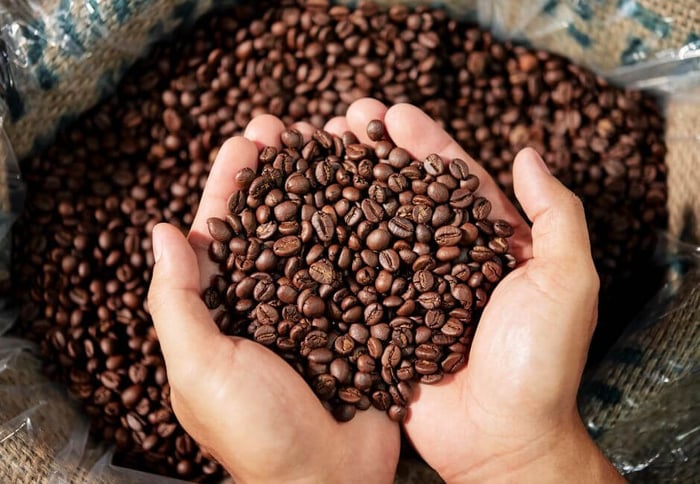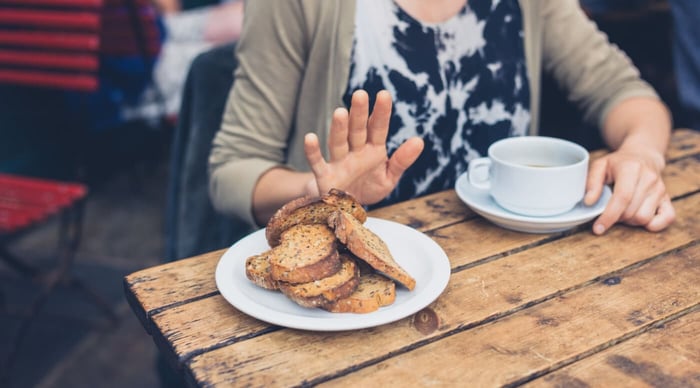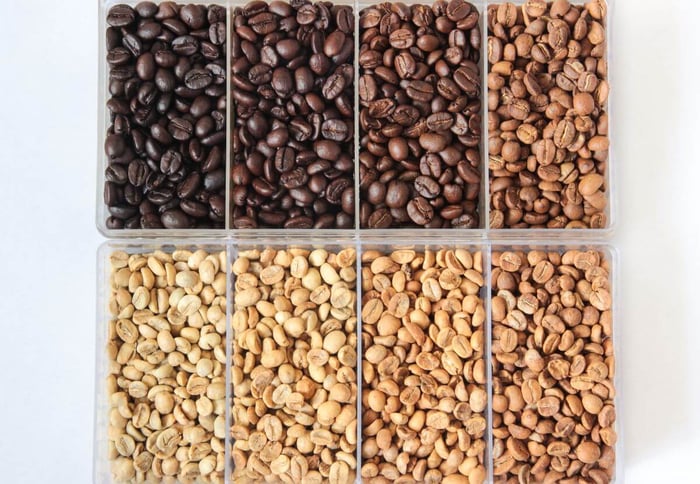The world of coffee is a fascinating realm, filled with a myriad of flavors and aromas that awaken our senses.
Among the many offerings, dark roast coffee stands out with its deep, intense profile. However, alongside its allure, there is a prevailing notion that dark roast coffee often tastes burnt.
This curious perception warrants exploration to uncover the reasons behind this intriguing phenomenon. Let's delve into the smoky depths and unravel the mysteries of why dark roast coffee sometimes carries a charred essence.
Understanding the Roasting Process of Dark Roast:
To truly comprehend the burnt taste conundrum, we must first grasp the intricacies of the coffee roasting process.
Coffee beans undergo a fascinating transformation during roasting, evolving from their raw, green state into the familiar brown beans we brew. Roasting encompasses a range of levels, from light to dark, each offering unique characteristics.
For our exploration, let's focus on the captivating world of dark roast coffee.
Chemical Changes During Dark Roasting:
Dark roast coffee owes its robust flavor to the complex chemical reactions that unfold during the roasting process. One of these reactions, known as the Maillard reaction, occurs when amino acids and sugars interact, resulting in the creation of desirable flavor compounds.
This reaction contributes to the rich, caramel-like sweetness found in dark roast coffee. However, as the roast progresses into the darker spectrum, there's another process at play – caramelization.
While caramelization can add depth and complexity to the flavor profile, it can also intensify the potential for a burnt taste if not carefully controlled.
Impact of Roasting Duration and Temperature:
The duration and temperature of the roasting process wield significant influence over the final taste of the coffee.
Dark roast coffee requires longer roasting periods compared to lighter roasts. During this extended roast, the flavors intensify, oils emerge, and the acidity diminishes.
However, if the beans are subjected to excessively high temperatures or prolonged roasting times, the delicate balance can tip, resulting in a burnt taste.
Achieving the perfect equilibrium requires skillful craftsmanship and precise monitoring to avoid crossing the threshold into charred bitterness.
The Role of Bean Selection For a Dark Roast:
Coffee beans are the soul of every cup, and their selection plays a crucial role in the flavor development of dark roast coffee.
Different coffee bean varieties possess distinct inherent flavors, textures, and aromas. Some beans, like Brazilian or Indonesian varieties, naturally lend themselves to dark roasting due to their deep, earthy undertones.
However, other beans may not fare as well when pushed to the darker spectrum. Understanding the unique characteristics of various bean origins and selecting those that harmonize with the desired roasting level can help strike a delicate balance and minimize the potential for a burnt taste.
Brewing Methods and Their Influence on Taste:
The brewing method we employ significantly impacts the flavor extraction and overall taste experience, particularly when it comes to dark roast coffee.
Over-extraction, or drawing out excessive flavors from the coffee grounds, can lead to an intensified burnt taste. Avoiding this pitfall involves fine-tuning brewing parameters, such as water temperature, grind size, and brew time, to achieve an optimal balance.
Experimenting with alternative brewing methods, such as the French press or pour-over techniques, can offer new dimensions of flavor and reduce the likelihood of encountering the undesirable burnt essence.
Common Misconceptions about Dark Roast Coffee:
Before we embark further, let's address some common misconceptions that surround dark roast coffee.
Firstly, it is crucial to dispel the notion that darker roasts inherently equate to better quality. While dark roast coffee has its allure and distinctive flavor profile, it is not inherently superior to lighter roasts. Taste preferences vary, and the notion of quality extends beyond roast levels.
Secondly, it's essential to challenge the perception that a bold flavor must always be accompanied by a burnt taste.
With skillful roasting, attentive brewing, and an open mind, a well-crafted dark roast can showcase deep, complex flavors without veering into the realm of charred bitterness.
Tips for Enjoying Dark Roast Coffee without the Burnt Taste:
Now that we have gained a deeper understanding of the intricacies involved in dark roast coffee, let's equip ourselves with practical tips to fully savor its delights without encountering the burnt taste.
Start by selecting high-quality beans and ensuring their freshness. Freshly roasted beans retain vibrant flavors and aromas that elevate the overall taste experience.
Additionally, consider adjusting your brewing parameters to optimize flavor extraction while avoiding over-extraction. This may involve fine-tuning variables such as water temperature, brewing time, or even exploring alternative brewing techniques like using an AeroPress or French Press.
Finally, embrace the world of blends and single-origin options, as they offer diverse flavor profiles within the realm of dark roast coffee. Explore the nuances of different bean origins and find those that resonate with your preferences, allowing you to enjoy the full spectrum of available flavors.
Final Thoughts About Dark Roast Coffee Beans
By understanding the nuances and embracing experimentation, we can appreciate the bold flavors of dark roast coffee without the unwelcome hint of charred bitterness.
So, go forth, fellow coffee enthusiasts, and savor the depths of a well-crafted dark roast, free from the shackles of the burnt taste.
Now find yourself a high-quality dark roast coffee like our Black Insomnia Extreme Caffeine Dark roast or Cuban Inspired Espresso from Cafe Bustelo Coffee.









